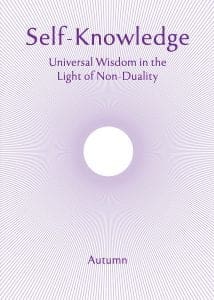An Allegory – the Princess and the Lotus
There was a princess who lived in a stately palace and had all that was needed to please. Her youth and beauty shone like a candle flame and she attracted princes from many lands who came to live in her court. She was well educated, wrote poetry, and her charm was enhanced by her life…
Read MoreMeditation Practice: the Sun that Never Sets
A meditation practice session led by the Warden at Shanti Sadan We may find ourselves being asked why we turn to meditation practice. All who meditate regularly know that time given to meditation helps meet various needs concerned, particularly, with our inner life—the state of our mind. There is the need for relief—relief from whatever…
Read MoreMaking the Right Connection
One of the great aids for pacifying and purifying the mind is the repetition of a holy name—a name denoting ultimate reality in either personal or impersonal form. The practice is often overlooked because of its simplicity, and also due to a certain scepticism which pervades the modern mind, but its efficacy is indicated by…
Read MoreSayings of Saints Universal (One)
A selection of sayings translated by Hari Prasad Shastri, from the Hindi original compiled by his friend and fellow devotee, Hanuman Prasad Poddar (1892-1971). The original brings together 2,500 prose sayings or short teachings, under the title Sant Vānī—‘speech of the Santas’, a Santa being a person of any faith, country or tradition who is…
Read MoreA Reading of the Quran from the Non-dual Perspective
The teachings and practices of all mystical traditions involve a special relationship. It is a relationship with one that symbolizes and forms a connection with the Reality that transcends our minds and senses. This relationship develops through affinity and love towards unity and identity. Christian mysticism begins with a recognition of the special qualities of…
Read MoreLiving in the Now
In the spiritual classic, Yoga Vasishtha, we find the following teaching: The way to be rid of this delusion of the mind is to fix our attention upon the present moment, and not to employ our thoughts on past or future events. The mind is clouded so long as the mist of its desires and…
Read MoreFrom Worry to Serenity
Unless a man is insane or super-sane, he must be subject to worries, anxieties, grief, agitation and so forth. These are the stages on the way to lead a man from sanity to super-sanity, that is, spiritual wisdom… Our worries and anxieties can be made footstools towards the higher life of truth, beauty and liberation…
Read MoreAll Light, All Peace, All Bliss
Subscribe or enrol for free guest access to read all of this article and Self-Knowledge online. Already subscribed or enrolled? Log in:
Read MoreSelf-Development
One of the chief purposes of life is self-development. The mental development means our capacity to love truth. It is expressed through our practice of virtue, of which patience in distress and forgiveness in prosperity are chief characteristics. This gives the mind serenity. A serene mind is essential to the development of love of truth…
Read MoreA Prayer from the Vedas
May my mind ever think of the good of all beings— That mind, which is a means of divine knowledge, which takes man far, far during the waking state, which causes objects to be known to the senses, which abides in the subtle cause in the state of sleep— May that mind ever think of…
Read More

